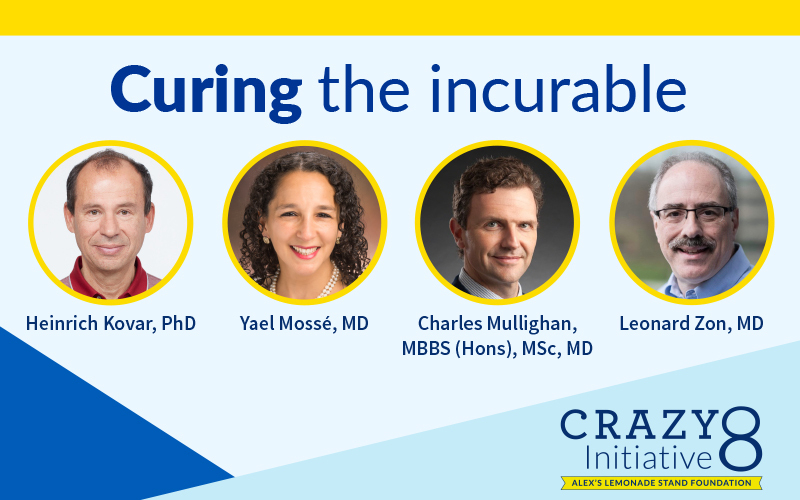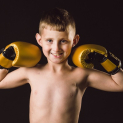The Childhood Cancer Blog
The Childhood Cancer Blog
Earlier in 2021, Alex’s Lemonade Stand Foundation (ALSF) committed $18.5 million to four game-changing, collaborative projects at 15 institutions in the United States and Europe. Funded through the Crazy 8 Initiative, these projects are taking on the most deadly childhood cancers with one singular focus: curing the incurable.
In September, the four project teams gathered at the Crazy 8 Summit, a two-day virtual event in which the scientists shared, collaborated and challenged each other. In just a few months of work, these four interdisciplinary teams have already made significant... Read More
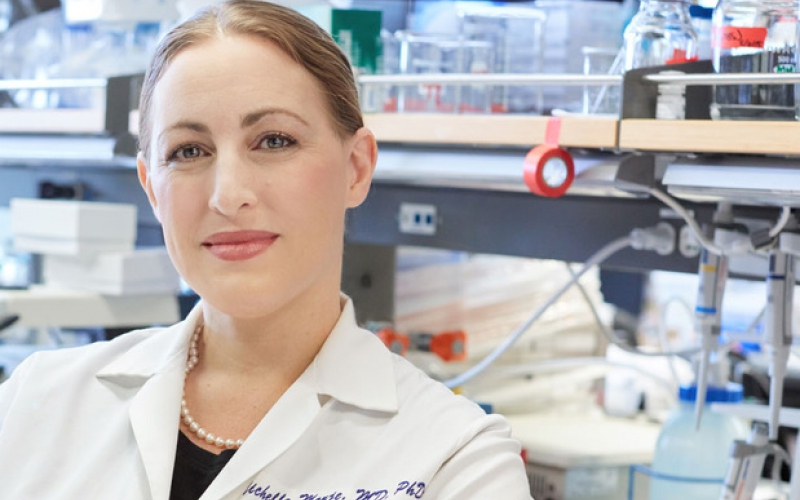
“ALSF helped launch my research program 10 years ago, and has supported my lab at every step along the way. Their investment in childhood cancer research has transformed the field and nurtured the development of a generation of childhood cancer researchers,” said Dr. Monje.
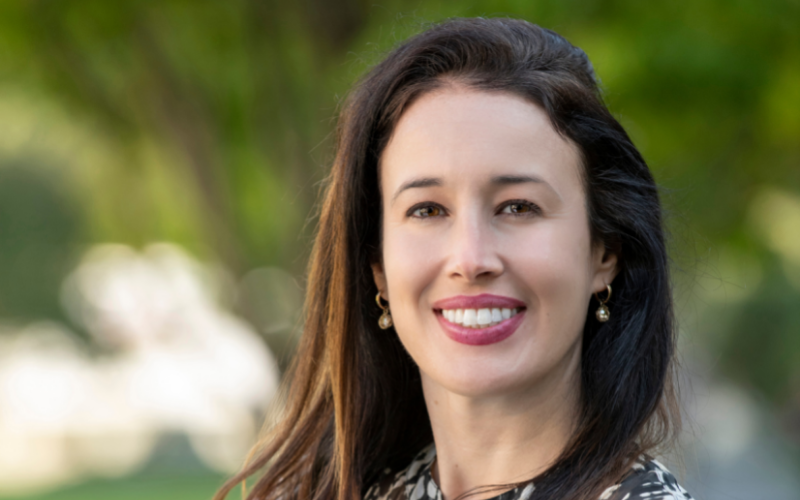
“The ‘high-risk, high-reward’ studies that ALSF supported are the some of the very studies that best represent me, our science and serve as the platform for the work we have ongoing and propose for the future,” said Dr. Kadoch. “It doesn’t escape me that the support from ALSF has been instrumental, and I extend my deep appreciation to ALSF for supporting our science from the very beginning.”
Two Alex’s Lemonade Stand Foundation (ALSF)-funded researchers, Michelle Monje, MD/PhD and Cigall Kadoch, PhD, have been named as Howard Hughes Medical Institute (HHMI) Investigators.
The HHMI program supports more than 250 investigators, located at more than 60 research institutions across the United States. As HHMI investigators, Dr. Monje, who is based at Stanford University will study the interactions between aggressive brain cancers, like glioma, and the nervous system’s circuity; and Dr. Kadoch, who is based at Dana-Farber Cancer Institute, will study chromatin and gene... Read More
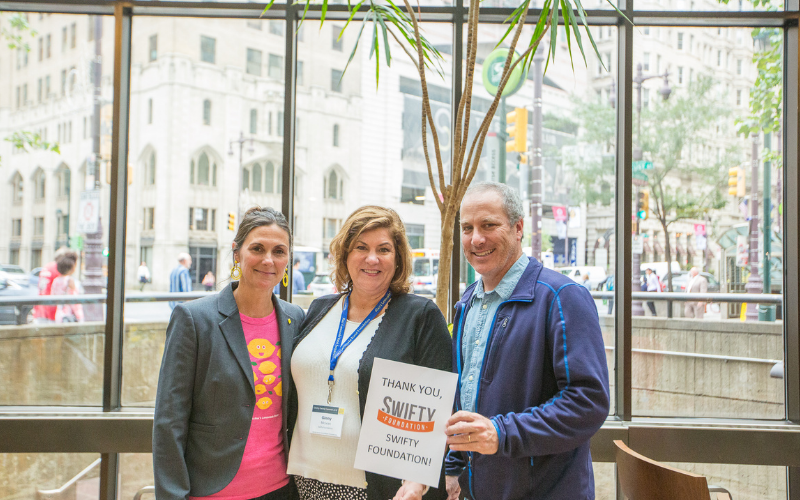
Ginny Mclean (center) from the Swifty Foundation togther with Liz and Jay Scott
Patti Gustafson became aware of childhood cancer when her son Michael was diagnosed with medulloblastoma, a type of brain tumor. Michael was nearing the end of his life when he developed his “Master Plan” to donate his tumor tissue to science so a cure might be found for other children. From his plan, the Swifty Foundation was born.
Michael died at the age of 15. Today, his family caries on his foundation.
“Before I was in this space, I always assumed 'somebody' was curing childhood cancer. I mean, everyone wants children to stop dying from cancer, so of course it’s... Read More
Pages

